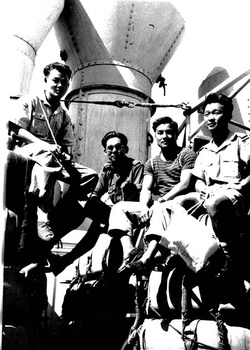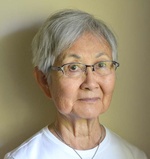Seventy years ago, 76 University of British Columbia students were not able to complete their degrees simply because they were of Japanese descent.
On Wednesday, November 16, 2011, the University of British Columbia’s Senate Tributes Committee issued the following press release:
The committee chair, Sally Thorne, wrote, “The University has taken seriously the need to find meaningful ways to provide solemn recognition of historical events.”
“To acknowledge the 70th anniversary of the provincial internment policy in the spring of 2012, we want to pay tribute to UBC students and others impacted during this time, and also take steps to help future students learn from the past,” said Thorne.
The Senate voted on three measures: to award special degrees to the estimated 76 UBC students whose studies were disrupted by internment; to develop initiatives to educate future UBC students about this dark episode in its history; and to have the UBC Library preserve and bring to life the historical record in its possession.”
Not since Redress has the national Nikkei community united in a movement for social justice.
This sends an important reminder to all of Canada that in our more than 130-year history never have Japanese Canadians ever been disloyal citizens.
Even though we have been openly attacked by racist politicians, the general public and media; been the targets of racist government legislation; prohibited from living in some major cities; barred from certain professions; forbidden to join the Canadian army at the beginning of WW2; dispossessed of private property and possessions and put into prison and POW camps; then deported to Japan and east of the Rockies after WW2, we have always remained true and upstanding Canadians.
A friend asked, “Does this repair the damage UBC did to its reputation when it hesitated in awarding the degrees?”
Well, we know that universities in the U.S. did this some years ago. UBC has been dragging its feet. I had recently heard that even a year ago UBC wasn’t willing to offer anything to the survivors and their families. They said that they were consulting with “the community” but that didn’t include either the National Association of Japanese Canadians or the Vancouver JCCA. It was only after the national community and supporters rallied to put pressure on UBC through letters and petitions that it changed its tone.
Mits Sumiya, 88, was one of those affected UBC Nisei. “When Mrs. Mary Kitagawa phoned me early on the morning to inform me of the UBC Senate’s decision, it took about 10 minutes to sink in. I was ecstatic! It brought to closure something that had been open-ended for 70 years.” Sumiya, who lives in Toronto, writes in an e-mail that he will attend the convocation if physically able.
Vancouver filmmaker/artist/poet Linda Ohama’s father George was a UBC student in 1941-42. “The decision by UBC makes me happy because it acknowledges the wrong that they made to ask their students to leave because of racial background. My father was Nisei and born in southern Alberta,” she writes from Onomichi, Japan.
On the other hand, Linda continues, “Having to leave university like that, plus the Officers Training Corp. impacted my Dad’s whole life. No one can ever really speak of, or understand how that was. That is part of our family’s history.
“My father was always so proud that (granddaughter) Caitlin was going to go to university to study law or medicine. If he had a choice of faculty, my father would have dreamed to be a lawyer. Caitlin is a UBC undergraduate and will be returning for her next level of studies soon.”

Tom Nishio who had to "leave UBC" in 1942 to go to Bridge River, B.C. "self-supporting" camp for Japanese Canadians who were expelled from the 100-mile exclusion zone. He later went to the University of Western, in London, Ontario, to pursue his business degree. Tom is shown in the picture as a member of the Canadian Army outfit that worked as translators at the end of WW2 in India.
Robynn Nishio, daughter of Tom, 90, said, “It is especially gratifying that those who were unable to go on to finish their degrees at another university are recognized. Our family was fortunate that both my dad (Toronto) and uncle Nori (Nanaimo, B.C.) were able to continue their university education elsewhere in Canada. Thank you to those who worked with UBC to make this happen.”
Mary Keiko Kitagawa, 77, of Delta, B.C. led this remarkable effort. She said, “I rejoice for all of the 1942 Japanese Canadian students whose planned futures were stolen from them. Judging from their enthusiastic voices and excitement about receiving the honorary degrees, it became clear to me how much UBC’s decision meant to them. My husband Tosh and I met with Christopher Eaton, UBC’s Associate Registrar and Director Senate and Curriculum Services on Tuesday, November 22, 2011. He informed us that all of what we asked for is in the plan: cap and gown, diploma with an appropriate Latin phrase, reception, the education component and the digitization of stories about Japanese Canadians for the UBC Library Collections.
“The ceremony will be identical with the regular graduation. There will be many high profile speakers. I am hopeful that the UBC Senate will approve of this plan at their January 2012 meeting. I think UBC is trying hard to create the best lasting legacy for the students, our community, and for itself,” she continues.
“Justice for any group can never be forgotten. I think the education component will enable future UBC students to learn about our history. It is my hope that the people of Canada never lose sight of what happens when the democratic system crumbles,” Kitagawa cautions.
Personally, it is my greatest hope that UBC’s School of Education, in conjunction with that province’s many excellent Nikkei educators and community organizations, will take a leadership role in the development of a lasting legacy that will help to better teach Canadians about our community’s often misunderstood place in history.
© 2011 Norm Ibuki






